|
Return to Essential Skills
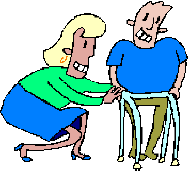
Coping With
Caregiving for Your Loved Ones: A Caregiver's Guide & Resources
HEALTHY AGING
My brain and heart dreams up commitments my body can’t keep!
In the past, I
provided care
to sick or elderly friends and family members for many years. I took care of my mother for 12
years and my grandmother for another 10 years. For me this proved to be
exceptionally challenging.
Many times, while providing exceedingly loving and
compassionate care, I depleted my “sanity reserve bank
account” and fell into self-destructive patterns for myself.

My thinking patterns became very distorted—I
loved others so completely that I would do anything for them, but when it came
to me, I wished God had made me a robot so that I would have NO needs. Having
needs was inconvenient. If I was supposed to be of “infinite helping support,”
then why did God make me with needs?

I finally realized that I had over-commitment
to others and under-commitment to me.
I saw the effect of this
pattern on my emotions and life.
Clues that I was becoming overwhelmed by my
caregiving were that I started to get grumpy and resentful towards those I
was caring for. I felt like I was "dial a disaster, dial Bob! I've got a problem
and I need you to fix it!" It seemed that the only time the family member called
me up was to request something of me, or to tell me what I had done wrong.
At that time it felt like my caregiving was done out of obligation and not
freely given--I felt drained--and I had no more to give.
I felt torn
apart: in that I was SO emotionally committed to my loved one and would do
ANYTHING for them...and
I had reached my limit of providing care for them.

From
hindsight, I would have talked with those family members and had an agreement up
front
that IN THE FUTURE when their need for additional care had exceeded my
ability to provide it (that I was mentally, physically, and emotionally being
harmed) that I would let them know. At that time they would need to go to an
assisted living facility or find some other type of help.

I
would have had these steps already planned out and communicated right at the
start to avoid problems later on.
I
learned that if in my old age anyone was willing to offer assistance to me for
my care, that I wanted to respect their natural limits.
I would want to
acknowledge that their love and support has natural and healthy limits. I
would want to let them know that when "it's THAT time," just let me know, and I
will understand. They KNOW that I love them and myself, as well.
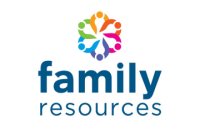
PTSD Resource--
Helpful information about PTSD and how to cope with it:
What
Happens in Your Brain During a PTSD Flashback?
19 People Describe What
It's Like to Have PTSD
What are the Causes of
PTSD?
13 (Non-Pharmaceutical)
Ways to Deal With PTSD
How to Use Yoga as a Coping Tool when You Live with PTSD
11 Signs Someone Might Have PTSD, Because It's Much More Common Than You
Probably Think
Common Therapy Approaches to Help You Heal from Trauma
How to Help Someone with PTSD From War: A Guide For Family & Friends
What It's Like to Live With PTSD After Escaping Domestic Violence
Aging Matters Documentaries: End of
life Decisions, Caregiving, Economics of Aging, The New Old Age, Aging In Place,
Healthy Aging, Living with Alzheimer's and Dementia, and other superb topics are
discussed. They provide perspective and life tools to use. Their website is:
https://agingmattersbrevard.org/
Additional Resources
According to the American Psychological Association, about
20% of seniors 65
and older meet the criteria for some kind of mental disorder. They also found
that this age group is significantly less likely to receive mental health
treatment, typically sticking to primary care doctors for all their needs.
While there is no
substitute for seeing a mental health professional, it’s important for seniors
to have access to the most current, comprehensive information about their mental
health. Check out:
http://www.balancedweightmanagement.com/Articles.htm#Seeking_Support_and_Counseling
Caregiver’s Guide
to Understanding Dementia Behaviors
The Benefits of
Cooking with Alzheimer’s: A Caregiver’s Guide
Six Things
Seniors Can Do To Improve Memory
Preparing Your
Home for a Loved One with Alzheimer’s: A Caregiver’s Guide
10 Easy Ways
Seniors Can Boost Their Mental Health and Well-Being
Eating for Your
Brain as a Senior
Overcoming The
Loss Of A Child Without Drugs Or Alcohol — A Parent’s Guide
Mourning A Parent
or Spouse’s Death
Promoting Mental
Health at Home: How to Design the Perfect Meditation Room at Home
Newsweek Magazine has a wonderful article about A Guide
for Caregivers and explores Caregiving & Alzheimer's: a PDF file:
Newsweek A Guide for Caregivers-MSNBC.com.pdf
See below the
extremely helpful resource,
COPING WITH
CAREGIVING.pdf which shares many practical
insights about how to manage stress when caring for loved ones. Discover below many other essential
resources.
 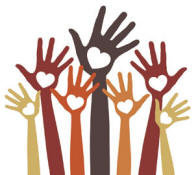
One
of the great joys and blessings in life is being able to share our talents and
gifts with our larger community—as volunteers. Again for me, this area has
time and again caused me problems. I want to make a difference in my
spiritual group, dietetic community, neighborhood, and the world at large—but my
diaries have shown me the harmful effects of what happens when I get out of
balance. I become compulsive, cranky, controlling, reactive, depressed, and
physically, mentally, and emotionally ill.

What's your experience with this area?
It you find that the topic of providing care to a loved one challenging, perhaps
see below for ideas on how to manage this matter. Also
visit:
Bob's Story: Balance In Life.
Many
clients I see and friends that I know have experienced the overwhelming stresses
of providing TLC for their loved ones. More that 20 million households
contain Americans who look after loved ones. While caregiving can offer enormous
rewards--providing a sense of fulfillment, deepening lifelong loves--research increasingly links it to deleterious health effects, including a
weakened immune system, depression and even premature death.
 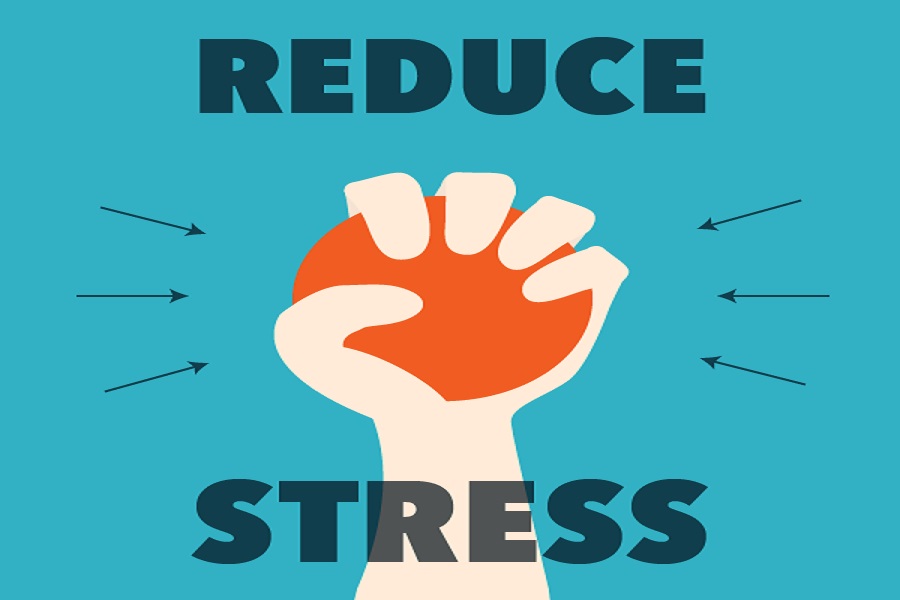
There are ways to relieve the
burden. Support groups offer lifelines out of isolation. Adult day-care programs
provide respite. Regular exercise lowers blood pressure and reduces stress and
depression. Taking time for healthful eating provides essential fuel for the
body. Most important of all: caregivers must look after themselves--without
their own good health, their loved ones will suffer, too.
Don't forget "care for
the caregiver" by noting how our daily lifestyle choices effect how the
caregiver feels too. For additional helpful
insights consider visiting:

EXPLORE
2017 CELEBRATE STEPS TO VIBRANT AGING PowerPoint
6 Powerful Ways To Help
Seniors Avoid Isolation
Here is an excellent article:
https://www.bayalarmmedical.com/medical-alert-blog/6-powerful-ways-help-seniors-avoid-isolation/

A friend recently shared some insight about aging: “I spent my younger years
doing what I was told to, my adult years doing what I had to… My golden years
are for what I want to
do!”
Indeed, I have a friend who living proof that retirement doesn’t have to mean
sitting around and watching time pass. They are involved in several clubs, they
golf at least once a week, and takes their son on outings every chance they get.
They even inspired several other friends to get more active!
I thought I’d try to spread that inspiration even further by sharing some senior
resources about making the most of the golden years.
Retirement: The Payoffs of an Active Lifestyle
Transportation Options for Seniors Who Don’t Drive
How Playing a Musical Instrument — at Any Age — is Good for Your Health
The Senior’s Guide to Becoming a Real Estate Agent in Their Golden Years
9 Things You Didn’t Know About Dating for Seniors
How to Love Our Adult Children with Purpose
Identifying and Stopping Opioid Abuse in Adult Children
How to Follow Your Dream and Spend Your Retirement Traveling the World
Aging in Place with a Little Help from Roommates, Neighbors, and Teenagers
5 Communities That Will Change Your View of Independent Living
Retirement doesn’t have to just be about stopping work... It can be about
starting the fun!
Resources shared by
Marie Villeza
http://elderimpact.org/

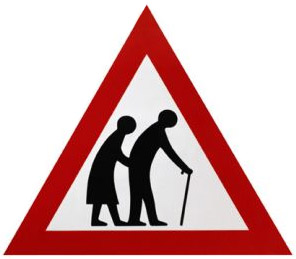
How to Manage
Stress When Caring For Chronically Ill or Elderly Relatives
Powerful
tools for Caregivers:
Powerful Tools for
Caregivers.org
http://www.powerfultoolsforcaregivers.org/about/
A terrific comprehensive workbook and class series.
A Pacific Northwest Extension
Publication. This excellent resource that is packed with lots of really
helpful information. It can be downloaded and printed off for free.
For the PDF version of this
excellent book, click on:
COPING WITH
CAREGIVING.pdf
Found at:
http://extension.oregonstate.edu/catalog/details.php?search=coping+with+caregiving
There is a great program
that has started around the country called: “Program of All-Inclusive Care
or the Elderly” or PACE- It is a pretty amazing program that offers a way
for fragile elders to stay in the community, has healthcare and many social
services.
Check out the Eldercare ABC
Blog with many important topics:
http://eldercareabcblog.com/pace-programs-an-important-senior-care-resource/
SSC currently
serves a 34-zip code area and has two sites. The mission of
SSC is to:
- Provide
high quality care and services to its participants
- Take
steps to keep participants as healthy and independent as
possible
- Prevent
premature nursing home placement
Comprehensive, coordinated care is a key part of Sutter
SeniorCare. Participants receive a broad range of services
including all benefits provided by Medicare and Medi-Cal and
more. Most care is provided at SSC centers by an
interdisciplinary team, which includes physicians, nurses,
social workers, rehabilitation therapists and others.
How can we help you care for your parents?
Visit
www.caring.com
for many terrific topics.
Check out: Health A-Z, In-home care, Money and Legal matters, Caregiver
Wellness, Senior Living Directory and much more!!
Elder Abuse:
http://www.injury-settlement-guide.com/elder-abuse-and-neglect.html
This website provides an overview of elder abuse, the types of, where, and
why it occurs and actions that can be done once, and while it is occurring.
It provides links to many resources.
Gift From
Within
(www.giftfromwithin.org) a non-profit
organization is dedicated to those who suffer post-traumatic stress
disorder (PTSD), those at risk for PTSD, and those who care for traumatized
individuals. GFW helps everyone with PTSD by sharing ideas, improving
morale, and reducing the stigma of the diagnosis and its treatment. We have
articles written by authorities in the field, poetry and art gallery for
trauma survivors, peer support pal network, personal coping and
inspirational stories, a Q&A, videos, book reviews, list of retreats for
survivors, global list of trauma survivor support groups, and other
educational materials and resources.
Some of our articles include:
"The Art and Science of Caring for Others
without Forgetting Self-Care";
Trauma Addiction: Safety and
Stabilization for the Addicted Survivor of Trauma;
Life
After Breast Cancer: Surviving & Thriving;
"Exposure To A Traumatic Event
Does Not Automatically Put A Person On A Path To Develop PTSD: The
Importance of Protective Factors To Promote Resiliency.";
Latinas in Pursuit of Healing: Cultural Implications
for Counseling Sexually Abused Latinas;
"I Will Survive: The African-American Guide to Healing
from Sexual Assault and Abuse (excerpt)";
Trauma in American Indian Communities;
Suffering in Silence: The Problem of Male Sexual Abuse;
Stress Responses in Sexual
Trauma Victims and in Others Experiencing Overwhelming Events
;
Don't
Make it Worse! Use of Alcohol or Drugs After Trauma;
Secret Diet Disasters of Trauma
Survivors
Geriatric Care Manager: www.caremanager.org
GCM is a non-profit,
professional organization of practitioners whose goal is the advancement of
dignified care for the elderly and their families. With more than 1,500 members, GCM is committed to maximizing the independence and autonomy of elders while
striving to ensure that the highest quality and most cost-effective health and
human services are used when and where appropriate.
Assisted Living Today, a Web publishing
company that specializes in information about elderly living.
We published on the subject of choosing the best care type for your loved one
would be interesting for your readers. We created guides for each of five
different care types:
• Assisted Living Care Guide:
http://assistedlivingtoday.com/p/assisted-living/
• Memory Care Guide:
http://assistedlivingtoday.com/p/memory-care/
• Nursing Home Guide:
http://assistedlivingtoday.com/p/nursing-homes/
• Care Home Guide:
http://assistedlivingtoday.com/p/care-homes/
• Independent Living Guide:
http://assistedlivingtoday.com/p/independent-living/
The aim with these guides is to help people faced with deciding what type of
care to choose for a loved one make the best possible decision.
They’re also designed to help those looking for care to determine which type of
facility is best within a certain care type, and offer information like
questions to ask, fees to look for, contractual issues you may run into, etc.
National Academy of Elder Law Attorneys:
www.naela.com
The National Academy of Elder Law
Attorneys, Inc. is a non-profit association that assists lawyers, bar
organizations and others who work with older clients and their families.
Established in 1987, the Academy provides a resource of information, education,
networking and assistance to those who deal with the many specialized issues
involved with legal services to the elderly and people with special needs.
The mission of the National Academy
of Elder Law Attorneys is to establish NAELA members as the premier providers of
legal advocacy, guidance and services to enhance the lives of people with
special needs and people as they age.
Another terrific resource
is:

Visit them to
discover: Caregiving articles, journal exercises, healing circle of prayer,
inspiration, humor, alternative healing, readings, resources, and MUCH more!
Visit:
http://www.care-givers.com/
Discover numerous
resources for: Caregiving sites, elderly sites, grand parenting resources,
alternative healing therapies, legal and financial information, dying, death,
and grieving sites, spiritual and metaphysical sites, humor and more are found at:
http://www.care-givers.com/pages/resources.html#Anchor
Aging Solutions
Aging Parents and Elder Care:
www.Aging-Parents-and-Elder-Care.com
Articles, comprehensive checklists, and links to key resources ... designed to
make it easier for family caregivers to quickly find the information they need
... and avoid overlooking something important in the care of their loved one.
Administration on Aging:
www.aoa.gov
: Provides caregivers and their parents
information on various services including elder
rights.
Area
Agency on Aging:
This government program provides a national
network of social services. See
www.n4a.org
(National
Association of Area Agencies on Aging) or call
800-677-1116 for your local agency.
Medicare Rights:
www.medicarerights.org
Independent source of health-care information
and assistance for people with Medicare.
National Hospice and Palliative Care
Organization:
www.nhpco.org
Offers information on
end-of-life issues and state-specific advance
directives.
Nursing Homes:
www.medicare.gov/nhcompare
Provides
detailed
information on
the past
performance of
every Medicare-
and
Medicaid-certified
nursing home in
the country.
Welcome to the
Eldercare Locator
Is a public service
of the U.S. Administration on Aging. The Eldercare Locator connects older
Americans and their caregivers with sources of information on senior services.
The service links those who need assistance with state and local area agencies
on aging and community-based organizations that serve older adults and their
caregivers.
You may find the information resources you need by following the directions
below or you may speak to an Eldercare Locator information specialist by calling
1-800-677-1116
Eldercare Locator Discover
local information, referral resources, and contact information for state and
local agencies, from the United States' Health and Human Services Department.
www.eldercare.gov/
Family Caregiving
Alliance: National Center On Caregiving
Family Caregiving
Alliance is a public voice for caregivers who provide loved ones with support
who have chronic, disabling health conditions. Our pioneering programs provide:
-
Caregiving
Information and advice
-
Education
-
Fact sheets and
publications
-
Services
-
Chat groups and
message boards
-
Research
-
Advocacy
Visit:
http://www.caregiver.org/caregiver/jsp/home.jsp
or call: 800-445-8106
An excellent
national resource is:
www.nofec.org

Exploring Disease States and
How to Best Manage Them
Healthopedia.com, a medical and
health consumer information resource containing comprehensive and unbiased
information in patient-friendly language from trusted sources on over 1,500
health topics, 70 focussed health centers, and more than 11,000 drugs and
medications. Visit:
http://www.healthopedia.com/
How to manage Alzheimer's disease:
http://www.healthopedia.com/alzheimers-disease/
Resource In Multnomah
County (Portland) Oregon
Lifespan Respite
Care Network
|
Search for on Internet: Lifespan Respite
Care Network, Aging and Disability Services
421 SW Oak Street,
Suite 510, Portland, OR 97204, (503) 988-4790
24-Hour Caregiver
Helpline (Multnomah Co. Department of Human Services): Phone #:
(503) 988-4790
The Lifespan Respite
Care Network was established by the Oregon Legislature as a single
point of access to serve all families and individuals, regardless of
age, income, race, ethnicity, special need, or situation. Lifespan
Respite Care Network links families with a variety of services and
supports in the community.
Respite care is
temporary, short-term care for an individual with special needs,
such as developmental and physical disabilities, emotional and
behavioral disorders, chronic illnesses, Alzheimer's disease and
related health concerns, medical fragility, and those at risk of
abuse and neglect. The primary purpose of respite care is to give
relief to families and caregivers from the extraordinary and
intensive demands of providing ongoing care. |
| 















